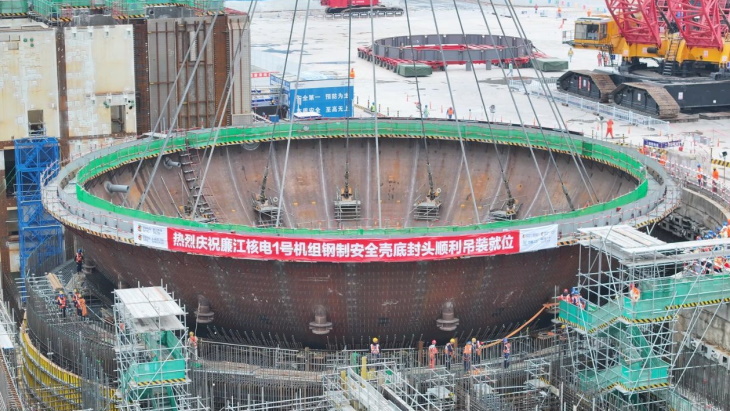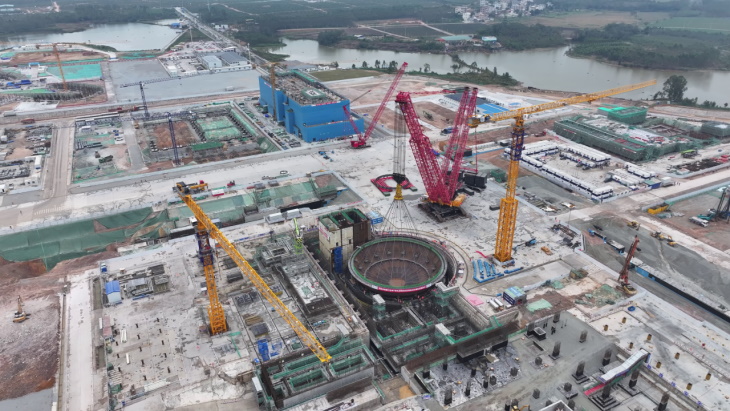The containment vessel bottom head has been hoisted into place for unit 1 of the Lianjiang nuclear power plant in China's Guangdong province, State Power Investment Corporation (SPIC) announced.

The containment bottom head for Lianjiang 1 is lowered into place (Image: SPIC)
The operation to install the bottom head was completed on 19 December and lasted 3 hours and 21 minutes, it said.
"This is the first nuclear-grade large-scale module hoisted into place in the first phase of the project, marking the full start of the construction of the No 1 nuclear island reactor building," SPIC said.

(Image: SPIC)
The steel containment vessel is composed of five modules: the bottom head, first cylinder ring, second cylinder ring, third cylinder ring, and top seal. The bottom head is the base of the steel containment vessel, with an inner diameter of more than 39 metres and a height of 11.5 metres. It is comprised of 64 arc-shaped steel plates welded together. The total lifting weight was about 850 tonnes, including supporting short columns, studs, attachment plates, and penetrations.
The first phase of the Lianjiang nuclear power plant project - the first coastal nuclear power project developed and constructed by SPIC in Guangdong - will comprise two 1250 MWe CAP1000 units. The site is eventually expected to house six such reactors. It is the first nuclear power plant in China to adopt seawater secondary circulation cooling technology, and is the first to develop and use a super-large cooling tower.
The construction of the first two CAP1000 reactors - the Chinese version of the Westinghouse AP1000 - at the Lianjiang site was approved by China's State Council in September 2022. Excavation works for the units began in the same month. The first safety-related concrete for the nuclear island of unit 1 was poured in October this year.
Lianjiang unit 1 is expected to be completed and put into operation in 2028.
Researched and written by World Nuclear News